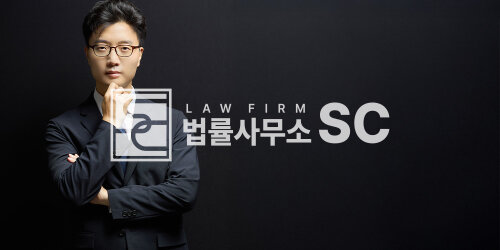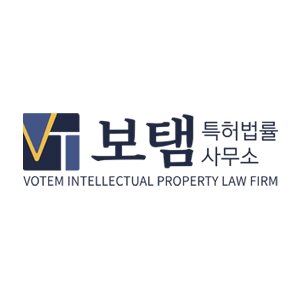Best Business Registration Lawyers in Seoul
Share your needs with us, get contacted by law firms.
Free. Takes 2 min.
List of the best lawyers in Seoul, South Korea
About Business Registration Law in Seoul, South Korea
In Seoul, South Korea, business registration is a legal requirement for anyone planning to establish a company or engage in commercial activities. The law governing business registration is primarily governed by the Commercial Act and the Foreign Investment Promotion Act. Business registration involves the formal process of incorporating a company, obtaining necessary licenses and permits, and complying with various regulations set forth by relevant government authorities.
Why You May Need a Lawyer
While it is not mandatory to hire a lawyer for business registration in Seoul, it can be highly beneficial to seek legal assistance, especially in complex or unfamiliar situations. Some common scenarios where legal help may be required include:
- Structuring your business entity and determining the most suitable legal form for your company.
- Reviewing and drafting contracts, agreements, and other legal documents.
- Complying with tax regulations and understanding tax incentives.
- Negotiating with government authorities or third parties on behalf of your company.
- Resolving disputes and addressing legal issues that may arise during the registration process.
Local Laws Overview
When it comes to business registration in Seoul, South Korea, there are several key aspects of local laws that you should be aware of:
- Commercial Act: This act sets out the general framework for establishing and operating businesses in South Korea. It covers various aspects such as business types, company registration procedures, duties and responsibilities of directors, and shareholder rights.
- Foreign Investment Promotion Act: This act regulates the establishment and operation of foreign-invested companies in South Korea. It outlines the procedures and requirements for foreign investors, offers incentives, and establishes a framework for dispute resolution.
- Tax Laws: Understanding tax obligations and incentives is crucial for businesses in Seoul. It is important to comply with corporate tax, value-added tax (VAT), and other applicable tax regulations. Tax incentives may be available for certain industries or regions.
- Labor Laws: Seoul has specific labor laws that regulate employment relationships, minimum wages, working hours, social security, and occupational health and safety. Businesses must comply with these laws when hiring employees.
- Intellectual Property Laws: Protecting intellectual property rights is important for businesses. Familiarize yourself with Seoul's intellectual property laws to safeguard your company's trademarks, copyrights, patents, and trade secrets.
Frequently Asked Questions
1. What are the different legal forms of business entities in Seoul, South Korea?
In Seoul, the most common legal forms for businesses include sole proprietorships, partnerships, limited liability companies (LLCs), and corporations. Each form has its own characteristics, advantages, and requirements. It is crucial to choose the appropriate legal form based on your business goals and preferences.
2. What are the steps involved in the business registration process?
The business registration process in Seoul typically involves the following steps:
- Choose a business name and conduct a name search.
- Prepare necessary documents, such as articles of incorporation, identification documents, and lease agreements.
- Visit the Seoul Metropolitan Government or the relevant district office to submit the registration application.
- Publish a public notice of your company’s establishment.
- Obtain necessary permits, licenses, and certifications depending on the nature of your business.
3. Are there any specific requirements for foreign investors registering a business in Seoul?
Foreign investors must comply with the Foreign Investment Promotion Act. The requirements may differ based on the industry and the scale of investment. It is advisable to seek legal advice to navigate the specific requirements and procedures applicable to your business.
4. How can I protect my intellectual property rights in Seoul?
To protect your intellectual property rights in Seoul, you can register your trademarks, copyrights, and patents with the Korean Intellectual Property Office (KIPO). It is recommended to conduct a thorough search to ensure your intellectual property does not infringe upon existing rights before registration.
5. What are the tax obligations for businesses in Seoul?
Businesses in Seoul are subject to corporate income tax, value-added tax (VAT), and other applicable taxes. The tax rates may vary depending on the type of business and the income generated. Proper bookkeeping and timely filing of tax returns are essential to comply with tax regulations.
Additional Resources
Here are some helpful resources for obtaining further information or assistance related to business registration in Seoul:
- Seoul Metropolitan Government: The official website of Seoul Metropolitan Government provides information on business registration processes, required documents, and guidelines.
- Invest Korea: Invest Korea is a government agency that assists foreign investors in establishing and expanding businesses in Seoul. They provide comprehensive information, guidance, and support services.
- Korean Intellectual Property Office (KIPO): KIPO is responsible for intellectual property registration and protection. Their website offers valuable resources, guidelines, and contact information for IP-related inquiries.
- Korea Customs Service: For businesses involved in importing or exporting goods, the Korea Customs Service website provides information on customs regulations, duties, and procedures.
Next Steps
If you require legal assistance or have specific questions regarding business registration in Seoul, South Korea, it is recommended to consult with a qualified business registration lawyer. They can provide personalized advice, guide you through the registration process, and ensure that you comply with all necessary legal requirements.
Lawzana helps you find the best lawyers and law firms in Seoul through a curated and pre-screened list of qualified legal professionals. Our platform offers rankings and detailed profiles of attorneys and law firms, allowing you to compare based on practice areas, including Business Registration, experience, and client feedback.
Each profile includes a description of the firm's areas of practice, client reviews, team members and partners, year of establishment, spoken languages, office locations, contact information, social media presence, and any published articles or resources. Most firms on our platform speak English and are experienced in both local and international legal matters.
Get a quote from top-rated law firms in Seoul, South Korea — quickly, securely, and without unnecessary hassle.
Disclaimer:
The information provided on this page is for general informational purposes only and does not constitute legal advice. While we strive to ensure the accuracy and relevance of the content, legal information may change over time, and interpretations of the law can vary. You should always consult with a qualified legal professional for advice specific to your situation.
We disclaim all liability for actions taken or not taken based on the content of this page. If you believe any information is incorrect or outdated, please contact us, and we will review and update it where appropriate.















